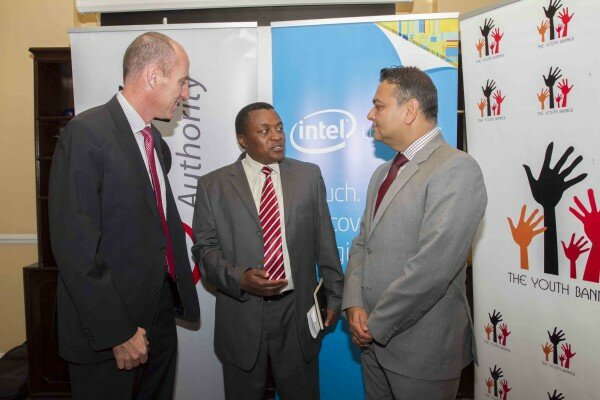
A total of 2000 women and girls stand to benefit from a digital literacy training program under Intel known as She Will Connect that will run until 2016 and will involve training of women and girls at various Pasha Centres in a number of counties.
Intel is collaborating with The Rockefeller Foundation, USAID, Safari Connect and The Youth Banner, a Pasha Business development Consultant for the ICT Authority. At the end of the training, the women and the girls will have a chance to start their own businesses or be employed.
The ICT Authority, through the Youth Banner has so far recruited 35 Pasha Centres in 27 counties into the program. The Pasha Centres will offer a specially designed self-tutoring curriculum known as Intel® Learn Easy Steps which is designed to help learners expand their understanding and use of technology.
New elements including an online peer network and the use of gaming technologies across multiple technology devices will also be integrated into the curriculum. Women and girls seeking to enrol for the training will be required to register at participating Pasha Centres and pay KES 3000 for the entire training.
“One of our mandates as an authority is to develop ICT skills and capacity in order to serve Kenyans better. We are championing this through partnerships, investment and infrastructure growth. Partners and initiatives like ‘Intel® Will Connect Program’ are essential if we are to achieve our development agenda. This program particularly marries with our goal of taking ICT to the marginalized and underserved through Pasha Centres,” says Victor Kyalo, Ag, Chief Executive Officer, ICT Authority.
The Intel®She Will Connect programme has a 2016 goal of reaching 5 million women and reducing the gender gap by 50 percent in the sub-Saharan region. The programme comes against the backdrop of the Women and the Web report released by Intel last year revealing the enormous Internet gender gap in the developing world and the social and economic benefits of securing Internet access for women.
The report examined women’s access to and use of the Internet in low and middle income countries and found that, on average, nearly 25 per cent fewer women than men are online in developing countries. This represents 200 million fewer women than men online today. In Sub-Saharan Africa, the size of the gap is 43 per cent — the largest across all the regions in the study.
Speaking at the launch, Suraj Shah Africa Programs Director, Intel Corporation said,“The opportunities associated with women gaining access to the Internet include improvements in self-esteem and expression, expanding their social and political participation, providing new skills that enable them to obtain formal education, become entrepreneurs, secure employment, and have access to information as well as new connections within their communities and beyond.”
Also at the launch, Wairimu Kagondu, Senior Program Associate at the Rockefeller Foundation Africa Regional Office said, “We will connect high potential but disadvantaged young women that complete Intel She Will Connect training with a series of online tools developed through the Foundation’s Digital Jobs Africa initiative. The tools will alert young women to the opportunity presented by online work and direct them to resources to access training, thereby building their skills and capacity to secure online jobs and earn an income from these jobs.”
“Helping girls and women realize their full potential is key to helping Kenya achieve its goal of becoming a middle-income country,” said Karen Freeman, Mission Director for the U.S. Agency for International Development, USAID, in Kenya. “At USAID we’re investing in science, technology, innovation and partnerships to accelerate progress for all Kenyans.”
Safari Connect, a Kenyan retailer with 34 outlets across the country trading in consumer technology solutions, will recruit women aspiring to become entrepreneurs from Intel® She Will Connect program.

















